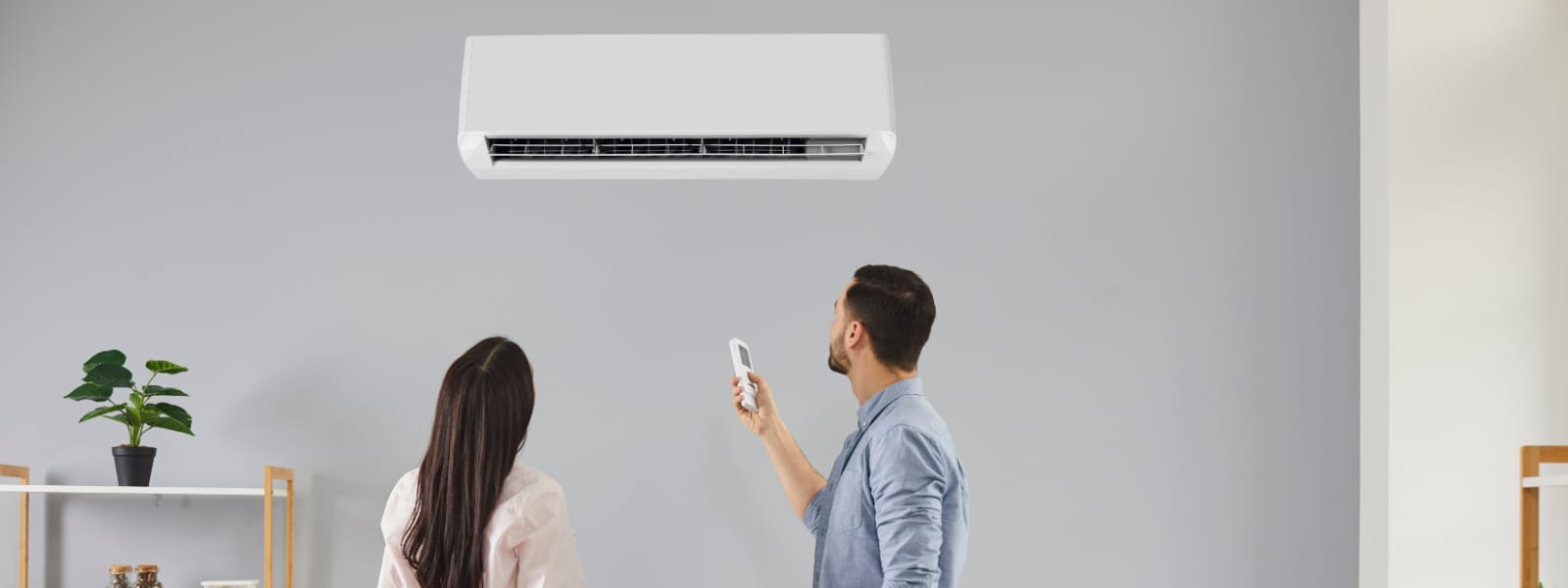Your HVAC System Is One Breakdown Away from Disaster. And State Automatic can help.
Summer is coming—or maybe winter. Either way, your HVAC system is about to go into overdrive. The question is—will it keep up?
The difference between a home that stays comfortable and one that turns into a furnace (or an icebox) comes down to preparation. If you wait until the first heatwave or cold snap to take action, you’re already too late. Your system doesn’t just need to work—it needs to work efficiently, reliably, and without draining your wallet.
Here’s how to prepare your HVAC system for summer/winter and avoid the nightmare of emergency repairs, skyrocketing energy bills, or worse—being stuck in a house that’s unbearable.
Step 1: Book a Professional HVAC Tune-Up
You wouldn’t drive cross-country without checking your car, so why are you expecting your HVAC to run at full capacity without a check-up? Dust, wear and tear, and minor malfunctions add up. What seems like a small issue today—slightly weaker airflow, a weird noise, a longer runtime—can turn into a complete system failure when temperatures peak.
More About How to Prepare Your HVAC System

A professional tune-up finds problems before they turn into emergencies. It optimizes performance, extends the life of your system, and ensures your HVAC is running at peak efficiency. More importantly? It saves you from the gut punch of a repair bill when you least expect it.
Call State Automatic at 630-326-6330 today and schedule your seasonal tune-up before your HVAC decides to quit when you need it most.
Step 2: Change Your Air Filters—Or Pay the Price
Your air filter is the unsung hero of your HVAC system. Neglect it, and you’ll pay for it. Dust, pollen, pet dander—these clog your filter, choking airflow and making your system work twice as hard. The result? Higher energy bills, weaker heating and cooling, and an HVAC system that wears out before its time.
A clean filter means:
✔️ Stronger airflow
✔️ Better air quality
✔️ Lower energy costs
✔️ A system that lasts longer
Check your filters every 30-60 days. If they look dirty, replace them immediately.
Step 3: Optimize Your Thermostat for Maximum Efficiency
Your thermostat is your control center. Use it wisely, and you’ll slash your energy bills without sacrificing comfort. Ignore it, and you’ll waste money every single day.
Summer settings: Keep it around 78°F when you’re home, higher when you’re away.
Winter settings: Set it at 68°F when you’re home, lower when you’re out.
Want even better results? Upgrade to a smart thermostat. It learns your habits, adjusts temperatures automatically, and ensures you’re never paying for heating or cooling you don’t need.
Your HVAC system works hard enough. Don’t make it harder.
Step 4: Seal Up Air Leaks—Stop Paying for Wasted Energy
Your HVAC system can be in top shape, but if your home is full of leaks, you’re still losing money. Cracks around windows, gaps in doors, and unsealed ducts let conditioned air escape—forcing your system to run longer and work harder.
Here’s how to fix it:
Inspect windows and doors for drafts. Use weather stripping or caulk to seal them.
Check your ductwork. Leaks in ducts waste up to 30% of your heating and cooling.
Add insulation in your attic or crawl space. More insulation means less heat loss in winter and less heat gain in summer.
Stop overworking your HVAC system. Lock in that conditioned air and keep your home comfortable year-round.
Step 5: Test Your System Before the Season Starts
The worst time to discover a problem? When you actually need your HVAC system. Don’t wait for the first 90-degree day or freezing night to find out something’s wrong.
Turn it on now. Let it run for 10-15 minutes. Pay attention to:
❌ Weak airflow
❌ Strange noises
❌ Unusual smells
❌ Inconsistent temperatures
If anything feels off, don’t wait. Fix it now before you’re stuck scrambling for an emergency repair when every HVAC company in Batavia is booked solid.
Step 6: Clear the Area Around Your Outdoor Unit
Your HVAC system needs room to breathe. If your outdoor unit is surrounded by overgrown plants, leaves, or debris, it won’t be able to release heat properly. That means reduced efficiency, longer run times, and a higher risk of overheating.
Keep at least two feet of clearance around your outdoor unit. Trim back bushes, remove leaves, and make sure it’s free of dirt and debris. A little maintenance now prevents big problems later.
Step 7: Don’t Ignore Warning Signs
Your HVAC system will warn you when something’s wrong. The key is listening before it’s too late. Watch out for:
Rising energy bills – If your usage hasn’t changed but your bill has, your system is struggling.
Inconsistent temperatures – Some rooms too hot, others too cold? Your system isn’t distributing air properly.
Weird noises – Banging, rattling, or grinding sounds mean trouble.
Bad smells – Musty odors could be mold in your ducts. Burning smells could be an electrical issue.
These aren’t small problems. They’re warning signs. Ignoring them now guarantees bigger, more expensive headaches later.
Prepare Now or Pay Later
Every year, homeowners make the same mistake. They wait. They assume their HVAC system will just “work.” Then the first major temperature spike hits, and suddenly—they’re in crisis mode. No AC. No heat. A repair bill that could have been avoided.
Don’t let that be you. Preparing your HVAC system for summer/winter isn’t just smart—it’s necessary. A tune-up today prevents breakdowns tomorrow. A clean filter saves you money. A well-sealed home keeps your HVAC running efficiently. Every step matters.
Call State Automatic at 630-326-6330 and schedule your HVAC maintenance now. Don’t wait for a breakdown. Get ahead of the season and keep your home comfortable, no matter what the weather throws at you.
